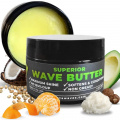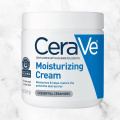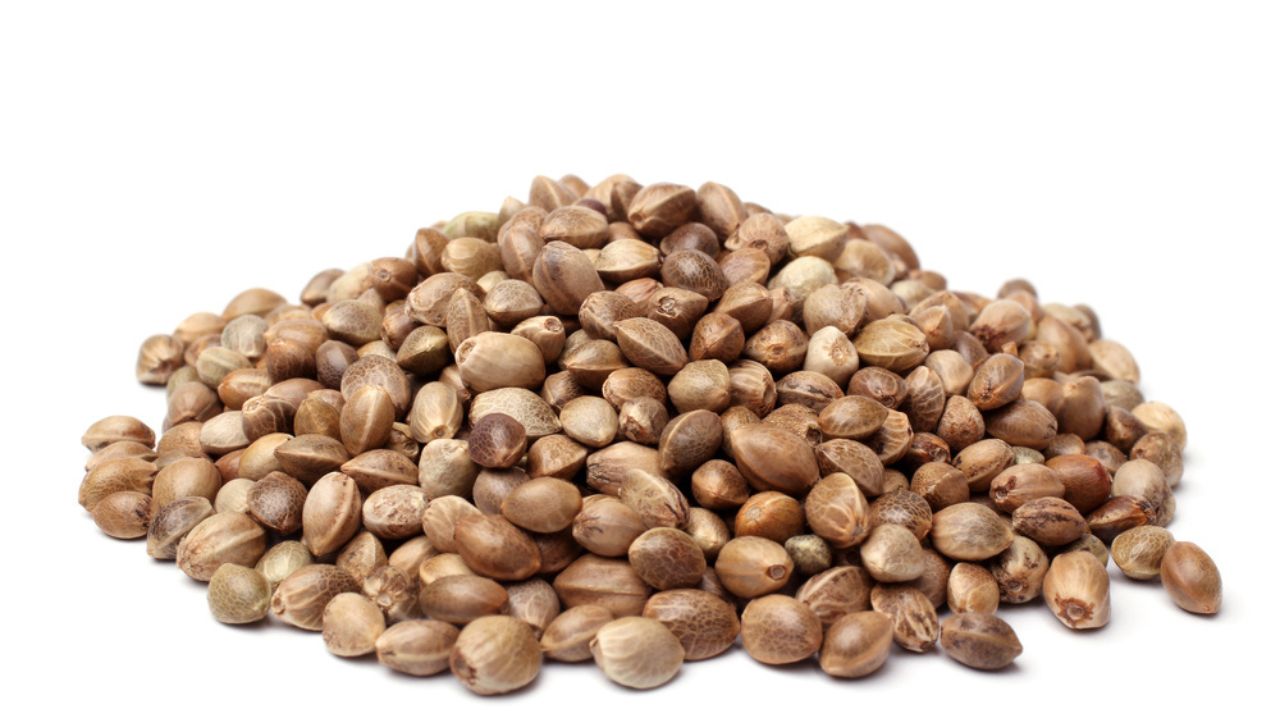7 High-protein Seeds to Enhance Your Daily Diet Plan
The best way to boost your diet is by adding the High-protein seeds to your meal plan. Here, we bring you a few such seeds that offer immense benefits.
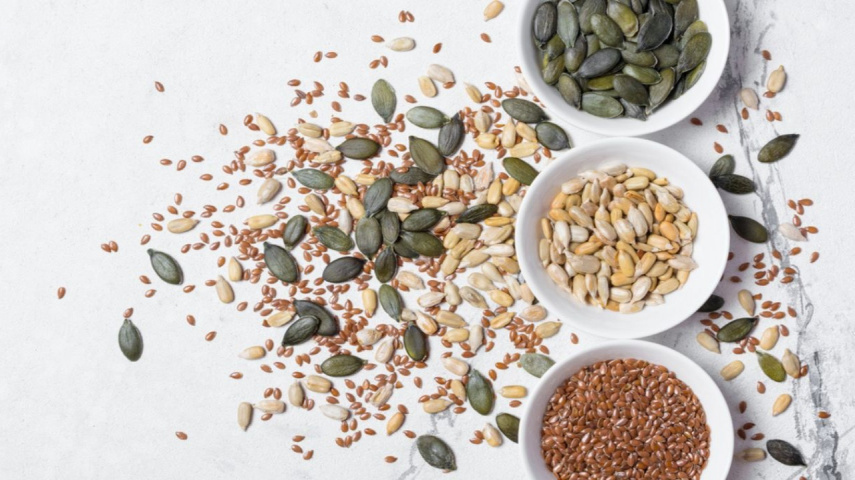
The highest protein seeds are essential for a healthy diet plant. They are a powerhouse of proteins in a tiny package. Seeds contain all the starting materials needed for a plant to grow into a complex structure. These also make them extremely nutritious. They are loaded with fibers, healthy fats, minerals, vitamins, and antioxidants. Thus by adding seeds to your everyday meals, you can enjoy benefits like reduced blood sugar, blood pressure, and cholesterol levels. Here, discover the list of 7 seeds with the highest protein content that will take your meals to the next level.
7 Highest Protein Seeds to Eat for Your Diet
Seeds are very versatile ingredients that require minimal or no prep work. You can totally munch on them as a handy snack, or sprinkle them over salads to add a crunch. You can even get more creative with these seeds. They work great with smoothie bowls and confectioneries too. Moreover, seeds provide a great source of protein, essential vitamins, and healthy fats that everyone can appreciate.
1. Hemp Seeds
Protein per 100 g - 31.6 g
Hemp seeds are a true powerhouse of vegan protein with more than 30% protein content. What's unique about hemp seeds is that they are among the rare few plants that provide a complete protein package. This means that they contain all the essential amino acids your body needs. It’s also proved that hemp seed oil can help with conditions like eczema and chronic inflammation (1), (2).
These protein-rich seeds can be enjoyed raw or used to make oil, milk, or even protein powder. You can also sprinkle them over your salads and cereal bowls.
2. Pumpkin Seeds
Protein per 100 g - 19 g
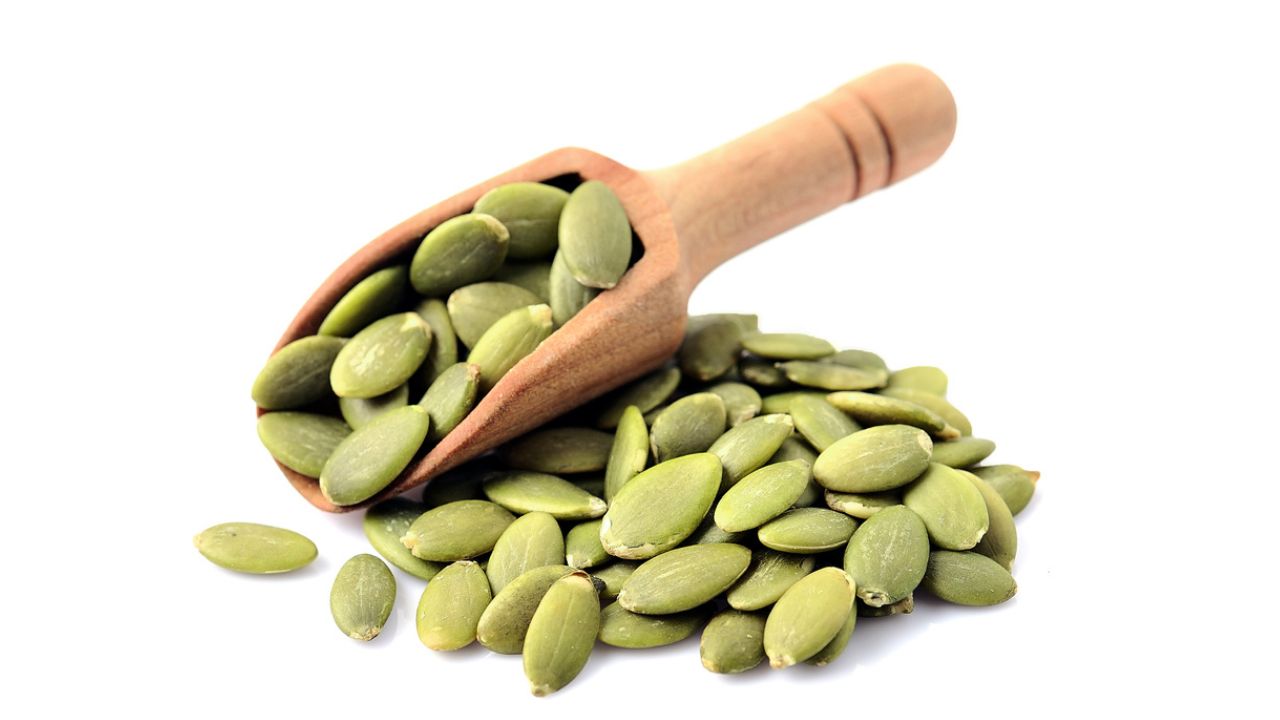
Pumpkin seeds are packed with protein, dietary fiber, and healthy fats. They are also rich in magnesium, phosphorus, and manganese. It's been proven that the oil from pumpkin seeds can actually lower blood pressure (3). Plus, they're known to work wonders against urinary disorders (4).
Moreover, the white shell of pumpkin seeds is where all the good stuff is hiding. So, pop those seeds in the oven, give them a light seasoning or a sprinkle of salt, and enjoy them as a tasty snack.
3. Sunflower Seeds
Protein per 100 g - 21 g
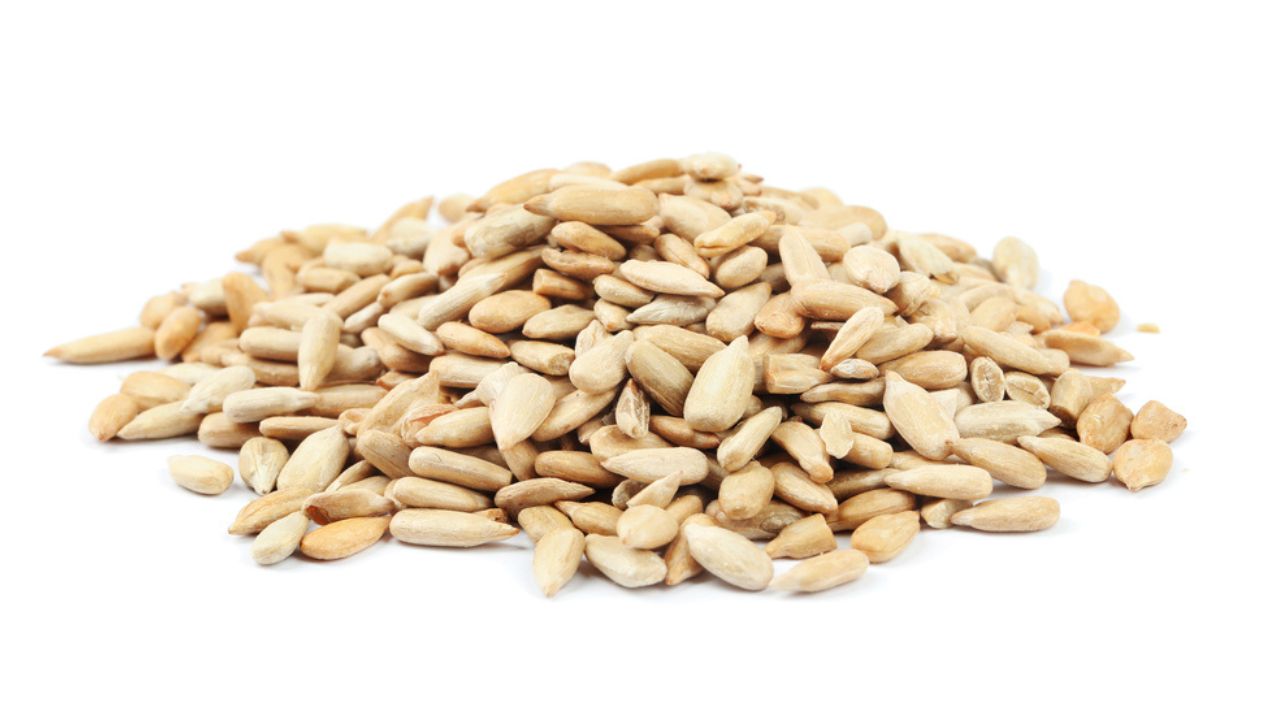
Sunflower seeds are actually born at the center of the flower head. They're not just tasty and protein-rich, but they also offer a good dose of healthy fats like omega-6 and monounsaturated fats. This may help in lowering cholesterol levels and reducing inflammation (5).
Sunflowers produce 2 distinct types of seeds. The oil-producing ones are black, whereas the edible seeds are white with a black stripe. According to RDN Divya Gopal, Consultant- Dietitian & Nutritionist, Motherhood Hospitals, Bangalore, “Black sunflower seeds are edible and safe to eat. They are often used as a nutritious and tasty snack. These seeds are similar to the more commonly known, gray-striped sunflower seeds but have a darker outer shell. They can be eaten raw or roasted and are a good source of healthy fats, protein, fiber, vitamins, and minerals. Black sunflower seeds are commonly enjoyed by humans, Just make sure they are free from any contaminants before consuming them.” You can add them to any of your favorite dishes for that extra crunch.
4. Flax Seeds
Protein per 100 g - 18 g
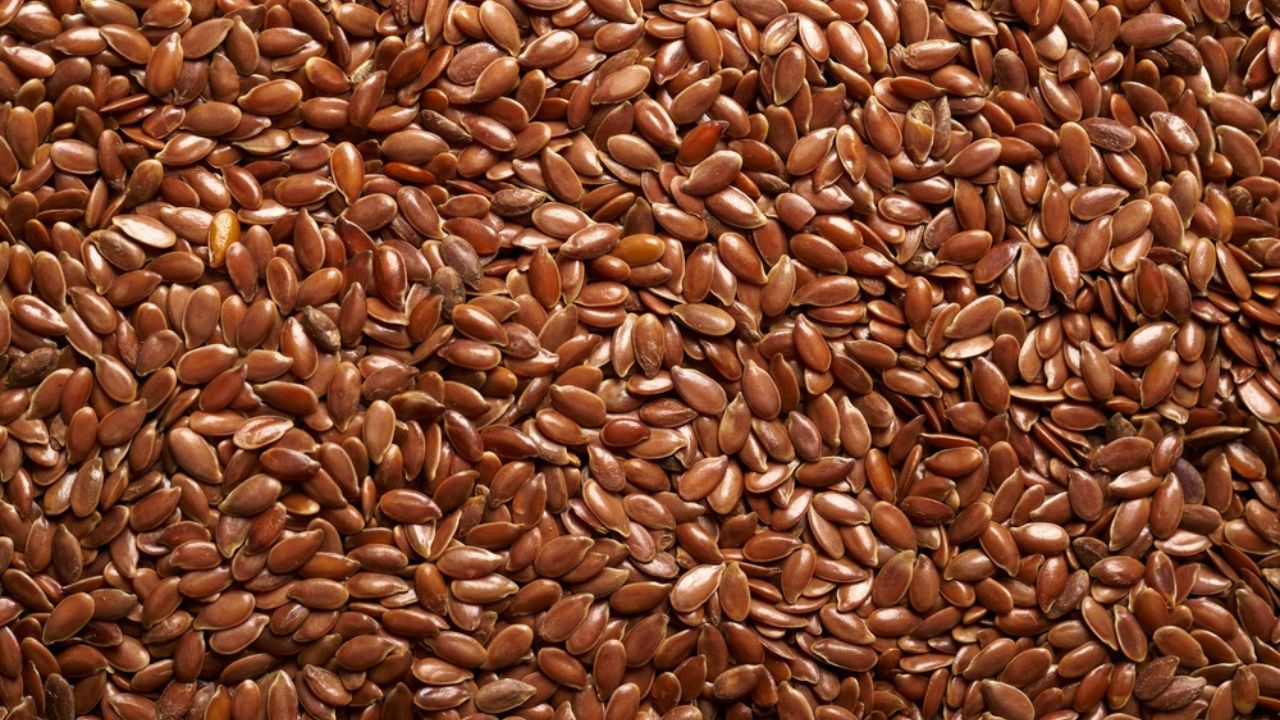
Flaxseeds, or linseeds, are one of the highest protein seeds that are packed with fiber and omega-3 fats, specifically ALA (alpha-linolenic acid). These nutrients are beneficial for lowering cholesterol and reducing other risk factors associated with heart disease (6).
Interestingly, the omega-3 fats are found within the tough outer shell of the seed, which our bodies have difficulty digesting. Therefore, for an optimal omega-3 intake, it's best to add ground flaxseeds to your diet.
5. Sesame Seeds
Protein per 100 g - 18 g
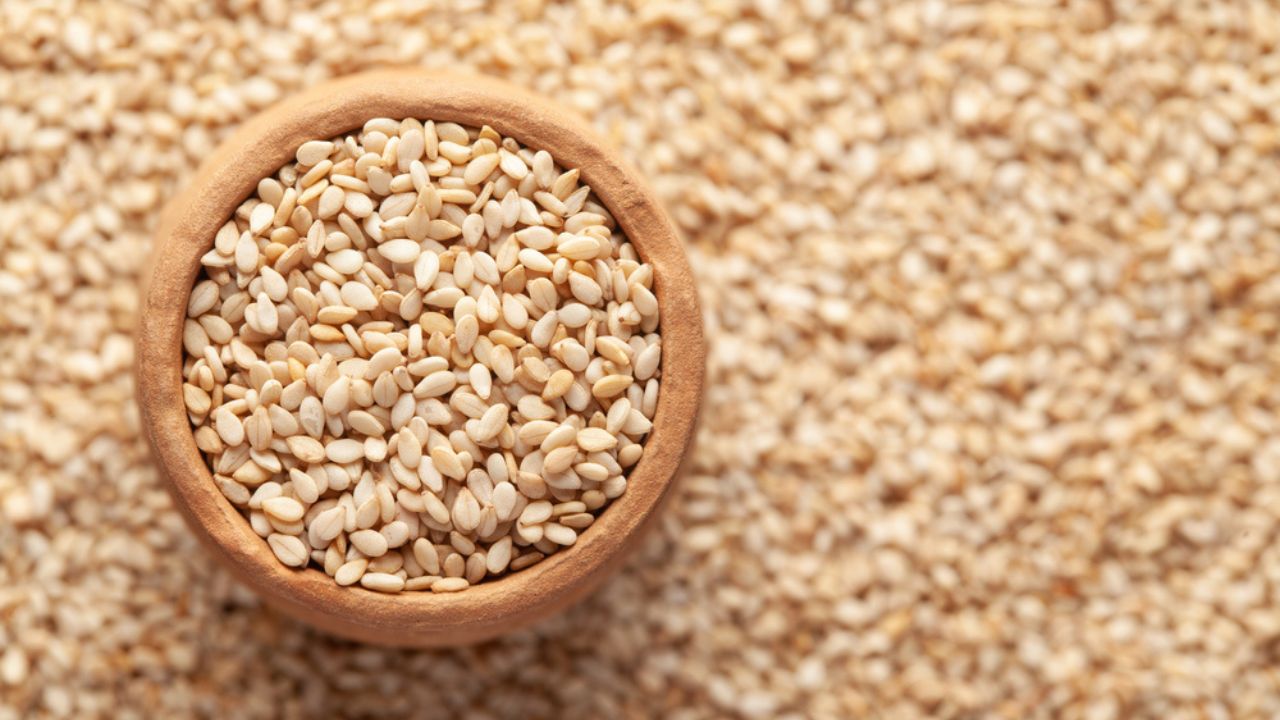
Sesame seeds are high in lignans like sesamin. This sesamin can be transformed by your gut bacteria into enterolactone, which has potential anti-cancer properties. Maintaining adequate levels of this lignan has been associated with a lower risk of breast cancer (7). Our contributor Kelsey Costa, MS, RDN and nutrition research specialist lays down some more benefits of lignans. She says, “Lignans are a type of phytoestrogen, compounds in plants that have estrogen-like effects on the body. They are believed to have several health benefits, including reducing the risk of certain types of cancer, improving heart health, and aiding in weight control due to their dietary fiber content. Additionally, lignans may also help reduce inflammation and improve digestive health.”
You can enjoy sesame seeds as a garnish to enhance the flavor of your dishes. Or else you can make a smooth and creamy tahini sauce with them.
6. Chia Seeds
Protein per 100 g - 17 g
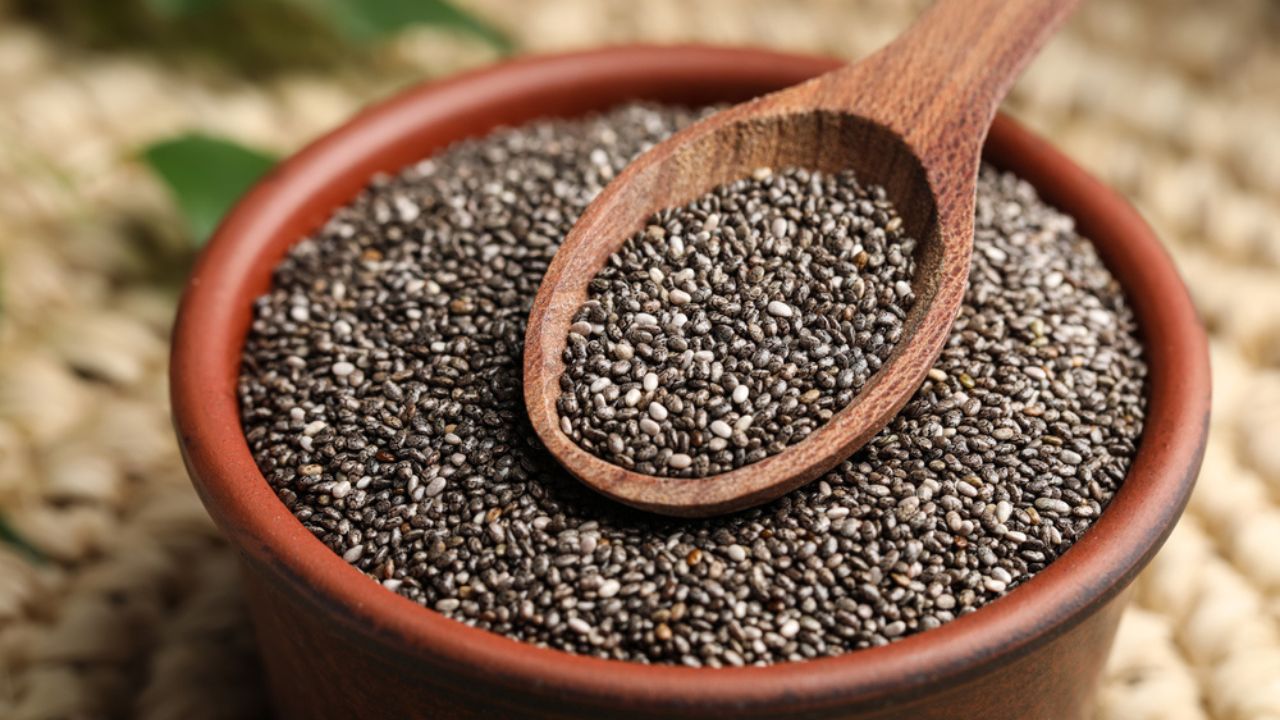
These tiny healthy seeds are packed with unsaturated fats which can reduce the risk of heart disease (8). Chia seeds even have the potential to lower blood sugar levels. Both whole and ground chia seeds have been shown to be equally effective in reducing blood sugar spikes after a meal (9).
They are a great addition to liquid foods due to their delicate seed coat. According to RDN Divya Gopal, Consultant- Dietitian & Nutritionist, Motherhood Hospitals, Bangalore, “Chia seeds can be eaten without being soaked, but doing so has some advantages. Chia seeds have a special capacity for absorbing liquid and, when soaked, form a gel-like consistency. As a result, they might taste better and be simpler to digest. Chia seeds can be soaked to assist the release of their nutrients and increase their bioavailability.” Moreover, chia seeds can be a fantastic vegan substitute for eggs when baking.
7. Quinoa Seeds
Protein per 100 g - 14.1 g
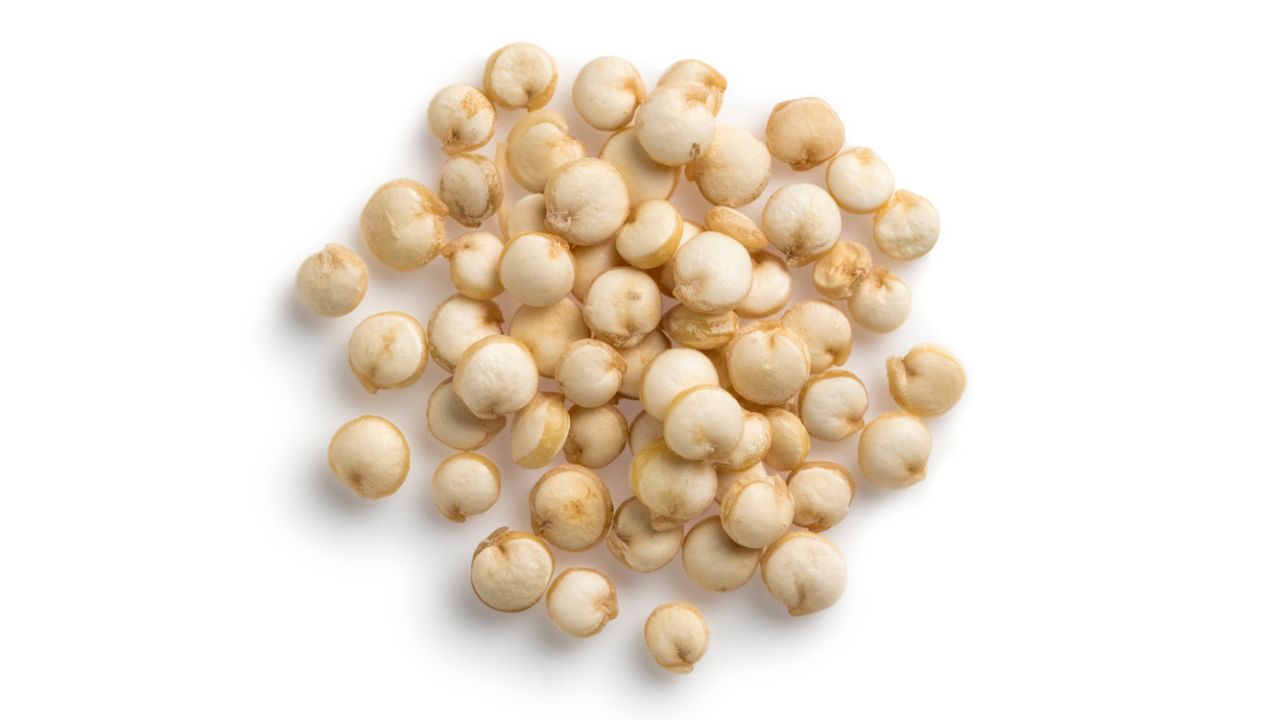
When it comes to protein, quinoa is a superfood. It packs more nutrients than most other cereals. Not only that, it's loaded with antioxidants, minerals, and vitamins (10). The best part is quinoa is gluten-free, with a low glycemic index. This may even support weight loss and help regulate blood sugar (11). Our contributor Kelsey Costa, explains, “Eating lower Glycemic Index (GI) foods can aid in weight loss as these foods cause a slower, more gradual rise in blood sugar levels, which helps to maintain satiety and control appetite. This process can lead to decreased calorie intake and aid in weight management. The science behind this concept is rooted in the body’s insulin response. Low-GI foods, which require less insulin for metabolism, can help prevent insulin spikes that may trigger fat storage. By choosing low-GI foods, you can support your body in maintaining stable insulin levels and potentially reduce the risk of storing excess fat.”
You can boil and add it to soups for that perfect thickness, or toss it into salads or breakfast porridge.
Benefits of Highest Protein Seeds
Seeds high in protein content offer a multitude of benefits for overall well-being.
1. Seeds are like the unsung heroes of nutrition. They are packed with proteins and essential trace minerals like phosphorus, magnesium, manganese, copper, and zinc. Seeds offer a nutritional profile similar to nuts and may even be opted for by people with nut allergies.
2. With their high dietary fiber content, seeds keep your digestive system in top shape by slowing digestion and normalizing bowel movement (12).
3. Plus, they're a fantastic source of good fats (unsaturated fats) that can lower the risk of heart disease (6), (8).
4. Many seeds boast anti-inflammatory and anti-cancerous properties too (2), (7).
5. Being low on the glycemic index, they provide slow-release energy, keeping your blood sugar stable and leaving you feeling fuller for longer (11). So, if you're looking to shed some pounds, seeds may be your best companion (11).
Conclusion
The highest protein seeds are not only a great source of plant-based protein but also provide a wide range of nutrients, fiber, and healthy fats. Adding them to your diet can have a positive impact on your overall well-being. A spoonful of seeds can even provide numerous benefits, like lowering your risk of cancer and heart disease. So go ahead and sprinkle them on your meals for a tasty and nutritious boost.
Contributor: Kelsey Costa, MS, RDN, and Owner of Nutrition Insights LLC





 JOIN OUR WHATSAPP CHANNEL
JOIN OUR WHATSAPP CHANNEL



































